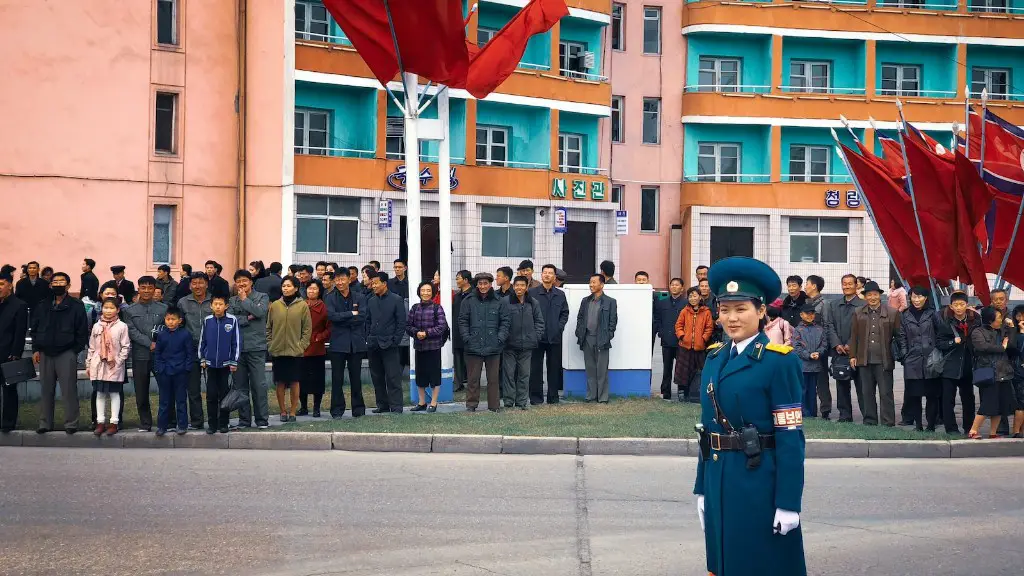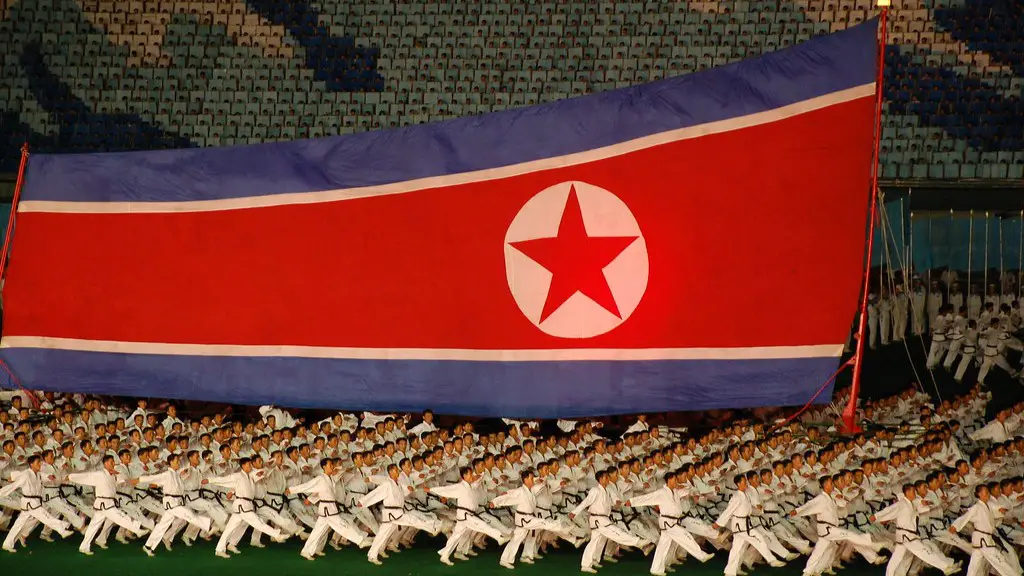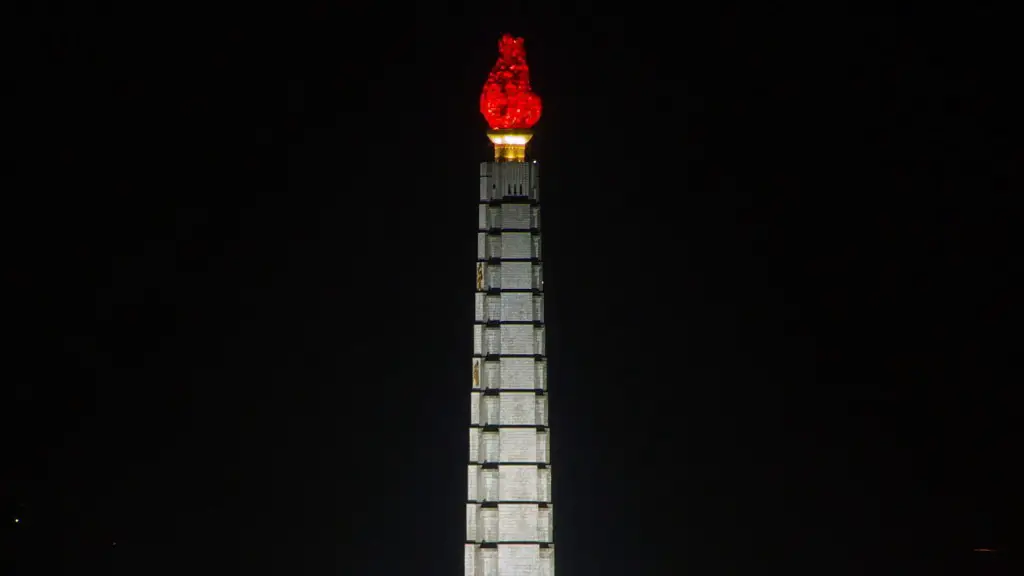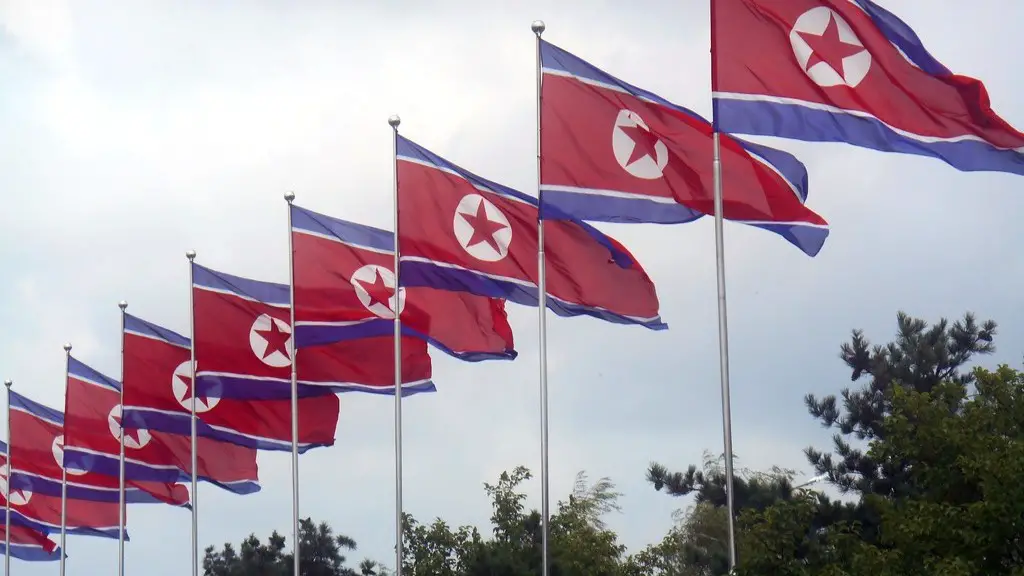The sanctions implemented by the United States against North Korea have been extensive, reaching far beyond the traditional economic confines. For more than fifty years, the United States has applied sweeping sanctions on North Korea from the time of the Cold War, looking to put pressure on the regime in Pyongyang and deter its nuclear ambitions. It has become increasingly clear that the policy of maximum pressure has not only been ineffective but also backfired in many aspects.
The United States government first implemented unilateral sanctions on North Korea in 1950, following its invasion of South Korea shortly before the outbreak of war in the Korean peninsula. These sanctions, however, were largely limited to cutting off economic and diplomatic ties. As the Cold War dragged on, new sanctions were introduced, targeting businesses, financial institutions, and government entities, as well as joint ventures involving North Korea and US firms.
In 2006, the United Nations began to impose its own sanctions on North Korea, expanding the range of those already in place by the United States. These sanctions were in response to the country’s refusal to adhere to the Nuclear Non-Proliferation Treaty, and included a ban on weapons imports, trade embargoes, and financial restrictions.
In 2017, the Trump administration began ramping up this pressure, as it sought to prevent North Korea from completing its nuclear weapons program. To that end, it unveiled a package of unprecedented sanctions, including an international ban on the North Korean economy and its ability to export goods such as coal, textiles and seafood. It also punished companies, banks and individuals who facilitate trade with the country, and further prohibited the Americans from conducting business with anyone who works with the Pyongyang regime.
Critics of the United States’s maximum pressure policy argue that while the economic sanctions may have caused some economic pain, they have done little to change Pyongyang’s behavior. Moreover, the severity and breadth of the sanctions seem to have only exacerbated the international community’s perception of North Korea. Worried about this perpetuation of North Korea’s pariah status, some experts argue that sweeping sanctions might have an even greater risk – widening the gap between North Korea and the United States which could make communication and ultimately negotiations much more difficult.
The effects of the US sanctions on North Korea have been felt across the peninsula, with reports claiming that they have severely hampered economic growth, lowered living standards and restricted access to international aid. In addition, US-imposed sanctions mean that North Korea has been unable to access critical technology, such as machinery, fuel, and vehicles, as well as critical financial services and international banking. US sanctions also severely limited North Korea’s access to global trade, impacting the country’s ability to obtain food, medicine and fuel necessary for its authoritarian regime to function.
Ultimately, the impact of US sanctions on North Korea remains a highly contentious issue with many experts divided on the effectiveness of their implementation. Those who believe in the power of sanctions argue that these measures need to be part of a broader set of policies through which the North Korean government can be compelled to change its behavior to be more in line with international norms. Others argue that a calibrated, constructive policy of maximum pressure remains the best way to achieve the desired outcome. What is more certain, however, is that for any policy to be favorably received by the North Korean government, any sanctions imposed must be paired with other strategies – such as negotiations.
What Are The Perceived Effects Of US Sanctions On North Korea?
The full ramifications of US sanctions on North Korea are difficult to gauge. The country’s already beleaguered economy has suffered further due to the restrictions, while its population at large is likely to have been among the primary casualties. Reports released by several media outlets, as well as other sources, suggest that the sanctions are driving up prices on everything from food to energy, leading to severe shortages and putting fresh strain on citizens who are already struggling to make ends meet.
The Obama administration further exacerbated the impact of sanctions on North Korea through a series of targeted executive orders. This move targeted North Korean entities such as banks, shipping companies, and individuals engaged in activities supporting the country’s military and weapons programs. This further limited the regime’s ability to generate funds, and put a stranglehold on its ability to export goods, thereby possibly hindering Pyongyang’s nuclear ambitions.
Furthermore, North Korea is subject to even more stringent financial sanctions by the United States in 2020. With the passing of a new law this year, the North Korean government still has severe restrictions in access to the US financial system and US-domiciled currency, making it extremely difficult for the country to conduct business or get hold of its money held abroad. This will directly impact how North Korea is able to purchase essential goods such as food and medicine.
Other reports claim that US sanctions combined with the country’s long-held isolation has caused a number of areas of the economy to suffer, including trade, energy production and farming. With economic growth slowing or stalling altogether, it is inevitable that some of the population’s most vulnerable citizens will be those most acutely affected.
What Are The Impact Of Sanctions On Inter-Korean Relations?
The sanctions imposed by both the United States and the international community have had a direct impact on the lives of the Korean people and on the relationship between North and South Korea. Firstly, the restrictions put in place concerning food and medical products have hit the North Korean population particularly hard, leading to fears of significant shortages. In addition, the limitations have also made it more difficult for the two Koreas to work together, particularly on key joint projects such as the Kaesong Industrial Park.
The sanctions have also had an impact on cultural exchanges, with the two countries’ leaders now rarely meeting or exchanging visits. Family reunions between the two countries, previously allowed to take place twice a year, were suspended in 2018 due to the sanctions, with the agreement not being renewed since then. This has contributed to an atmosphere of mistrust and animosity between the two Koreas, compounding existing tensions.
In addition, US sanctions have likely also contributed to North Korea’s increased interest in acquiring nuclear weapons as a means of deterring any form of attack from the US or its allies. This poses a potential threat to regional and global security, as well as to any possible negotiations between the two sides.
What Are The Possible Risks Of Sanctions?
The sanctions imposed by the United States and its partners on North Korea carry a number of risks, some of which include causing greater economic strain on the North Korean population, and further escalating tensions between the two Koreas, thus reducing the chances of a peaceful resolution.
Experts have further argued that such significantly hurting the North Korean economy could lead to a potential political collapse, a nuclear weapon being used and/or the rise of other regional powers. These potential risks must be taken into account when assessing the efficacy of US sanctions, as the costs of any of these situations is distant too high, and could far outweigh any potential benefits to the US.
Further speculation has been made surrounding the risk of inadvertent humanitarian crises, due to North Korea’s inability to pay for medical care and other key services needed for a functioning society. This could bring about the suffering of more people than the sanctions were intended to target, thereby offsetting any achievements made in terms of changing the behavior of the North Korean regime.
It is also thought that the US sanctions are instigating a kind of economic warfare between North Korea and the United States. This type of war is one that North Korea is arguably better equipped to win due to its economy being much less reliant on global markets than the US’s. The outcome of this type of ‘war’ could be disastrous for the US, something that should not be overlooked or downplayed.
What Alternatives To US Sanctions Against North Korea Are There?
Experts almost unanimously agree that the US sanctions on North Korea are not an end-all solution to resolving the extensive issues between the two countries. A number of potential alternatives to the use of sanctions have been suggested by specialist commentators.
One such alternative put forward is engagement. This could be in the form of diplomatic meetings, agreements, arms control negotiations and other forms of communication between the two countries. Such activities could allow for greater understanding across both sides and potentially an easier path to negotiations in the future.
Moreover, economic engagement has been proposed as a viable alternative. The idea is that economic engagement would allow for greater access to the North Korean markets, as well as key public infrastructure, leading to potentially more positive long-term investment and a more stable platform to start negotiations on.
Another potential alternative is cultural engagement, whereby diplomacy and exchanges between North Korea and the outside world would be encouraged. This could involve both North Korea and the United States exchanging information, ideas, people and resources. It could also potentially involve educational visits, a form of ‘academic diplomacy’ and increased tourism from the outside world. It is thought that these activities may serve to bridge the gap between the two countries, creating greater understanding and an easier pathway to negotiations.
Are There Any Other Regional Players Affected By The US Sanctions?
The United States’s sanctions against North Korea have impacted more than just the two countries directly involved. The government in Beijing has long been a staunch ally of North Korea and therefore has been consistently critical of the US’s maximum pressure approach. That being said, the Chinese government has occasionally backed some United Nations resolutions designed to pressure North Korea, most recently the June 2020 wide-ranging document restricting North Korean exports.
South Korea has also been subject to a significant degree of economic sanctions arising from the US’s hard-line stance against Pyongyang. In particular, many South Korean companies have been targeted for their alleged support for North Korean activities. In response, South Korea has sought to develop its economy within the confines of US sanctions and has put in place a number of measures to minimize the impact of US sanctions on businesses and individuals.
The international scope of US sanctions means that other countries such as Russia, Japan, and Thailand have also felt their effects. US sanctions on North Korea have had the unintended consequence of dampening economies throughout the region. It is yet to be seen how these countries will respond to the increased pressure.
What Should Be The US’s Policy Going Forward?
It is essential that the US considers a long-term strategy with regards to its policy on North Korea. Such a strategy would combine a host of measures, including sanctions, negotiations and diplomatic efforts. In addition, experts suggest that the US should take a more nuanced, ‘3D’ approach in order to achieve a lasting result. This would involve focusing on disarmament, denuclearization, and human rights simultaneously.
A further suggestion is that the US should pivot from a ‘maximum pressure’ strategy from one of ‘constructive engagement’. This strategy would combine the use of sanctions, negotiations and diplomatic efforts in order to solve the issue with North Korea. It is thought that this approach





